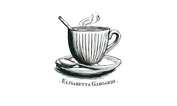When illness required a rosary.
- Elisabetta Gaboardi
- Aug 3, 2024
- 2 min read
Updated: Mar 20
If we stop for a moment to look at the past, the first thing we notice was the way in which the facts of life were taken by the people of those times.
There was a basic form of acceptance for what life had in store, whether they were bad, very bad or downright dramatic.
Was it faith? Was it the ability to take each day as it was and grieve or rejoice for what it brought with it?
The fact is, that whatever it was, it was lived with a decidedly practical attitude. They had little time to complain and the more disastrous the fact was, the more it required an immediate reaction. A reaction that arose from years of practice or from the wise teachings of previous generations.
I am reminded of illness for example. At the time, in all past eras, it was in itself a "fact of life" and had to be managed as such.
They were used to death, whether it was children or the elderly, it was in the natural order of things, if it happened to adults and worst of all, to the man of the house, then it was a real disaster. A real misfortune, which brought with it moments that were really difficult to overcome and the closeness of the whole village.
But the disease was another thing, that had to be stopped, it had to be defeated in the shortest time possible and it was necessary to "show respect" to prevent it from coming back.
When a person got sick, he was isolated to prevent him from infecting others and a whole series of measures were implemented, until he was completely healed.
Sheets and clothes were changed every day, and boiled to disinfect them, only one person in the family was assigned to look after the sick person, to avoid exposure to contagion. Women gathered to recite rosaries because the Divine Interdiction was as useful as herbal and medicinal cures. If the doctor arrived, it was an inescapable sign for everyone that the situation had become truly serious.
And in the end the longed-for recovery arrived, worthy of celebration and thanksgiving to God and the Madonna, because it was not at all a given, quite the opposite given that all too often in the end, Death arrived.
If we look at today, some of those wise measures still survive in popular use, but much has been lost. Like Convalescence. The period following the illness that allowed the patient to recover peacefully, get stronger, eat well and be able to return to carrying out his life, and his work if he was an adult, or an elderly person, so precious and important for the whole family with its baggage of advice and help.




Comments